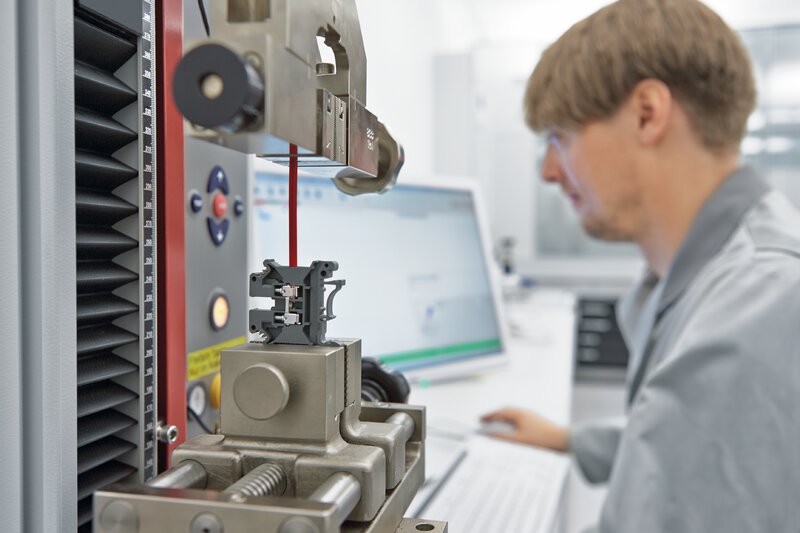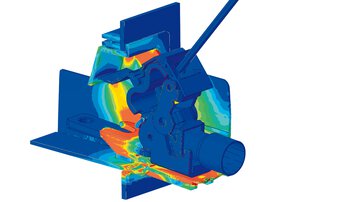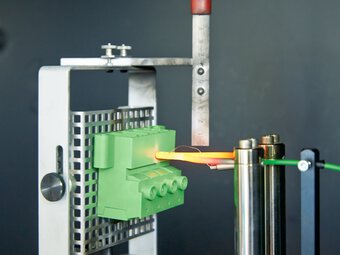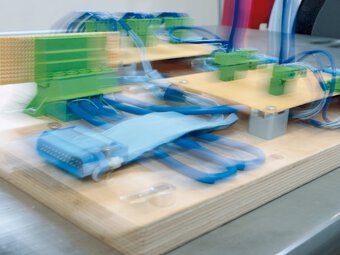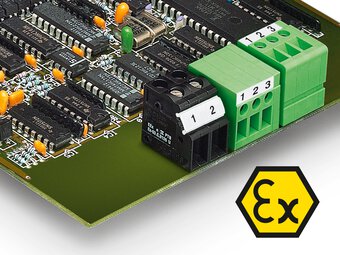Laboratory tests for connectors and electronics housings
Tested quality for the highest level of safety
Connection technology of the highest quality for device manufacturers – high quality, reliable, durable and safe. This is the Phoenix Contact guarantee for PCB terminal blocks, connectors, and electronics housings – the key elements in device manufacturing – and also a promise to our customers. We do not just test the quality of our products once they have been produced; rather, we have a comprehensive quality management program in place right from the start of the development process. This is because every conductor connection technology has to meet specific standards, certifications, and also country-specific requirements.

